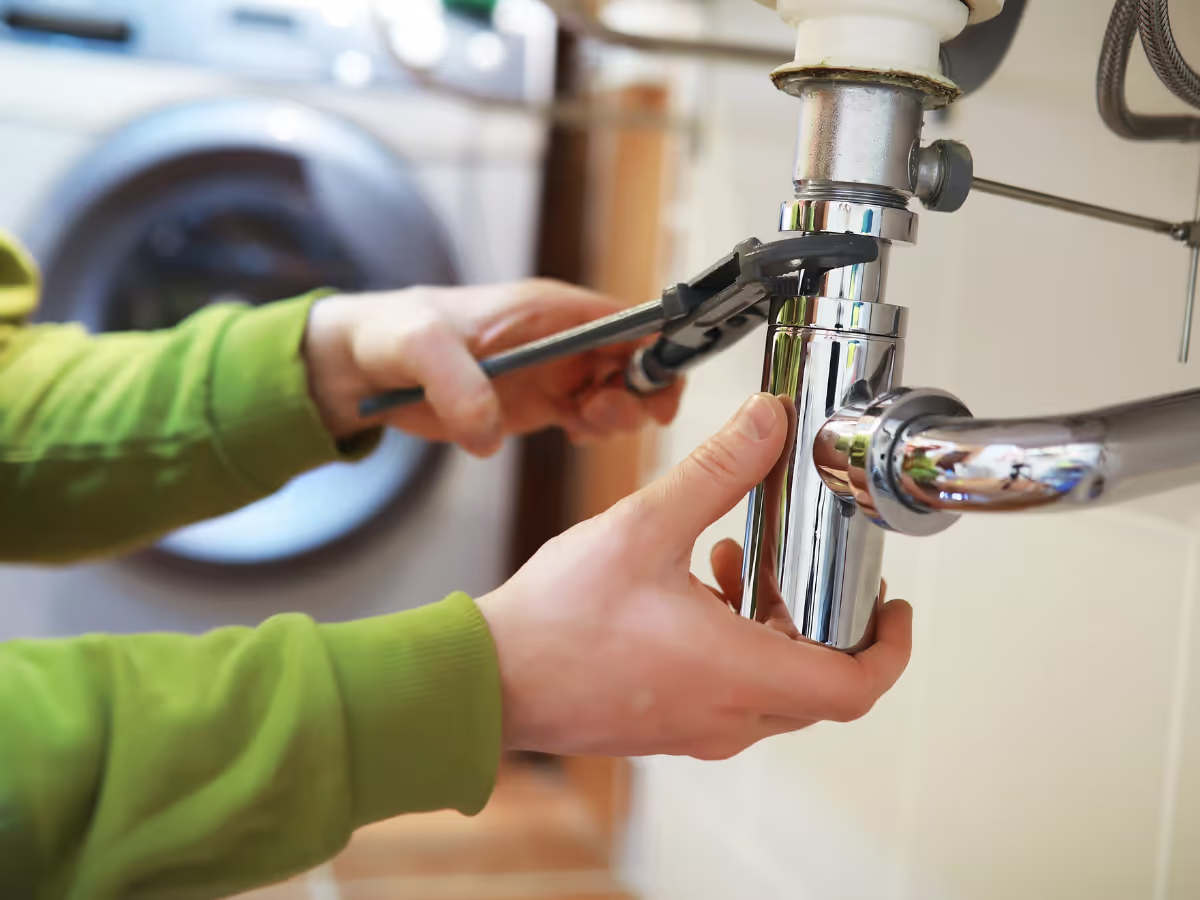Not Moving Yet? Get Your Rental Ready!
If you’re planning a move in the near future and considering listing your home as a rental, you’re probably thinking about all the steps you need to take ahead of time. Whether you have a new job lined up or family obligations taking you away from home, renting your property is a great way to ensure it’s still there should you ever want to come back (not to mention a source of passive income in the meantime)!
If you know you need to get your home rent-ready but this transition is still several months out, there are a few steps you can take today to make your life easier down the road. In this article we're going to share everything you need to know to get your home rent-ready before you move.
Let’s get started!
Pinpoint When You Will be Moving
To the best of your ability, identify when you will be moving so you can accomplish all of your goals on an appropriate timeline. You will want at least three months and possibly more to prepare your property to transition to a rental.
Creating a detailed timeline will help you stay on track, ensuring that tasks such as repairs, cleaning, and marketing are completed without last-minute stress. Make sure to include buffer periods for any unexpected delays or complications that might arise.
Speak With a Professional Property Manager
Start researching property management companies and schedule time to meet with a few different options. We recommend selecting and interviewing at least three different options so you have enough information to compare and contrast their offerings.
Here are some of the important things to learn about a potential property manager or management team:
Experience and Expertise
- Experience: Look for a property manager with a proven history of managing properties similar to yours. Experience in your specific market or property type (e.g., single-family homes, apartments) is essential.
- Expertise: Ensure they are well-versed in local and state landlord-resident laws to avoid potential legal issues that could arise with future residents.
Services Offered
- Comprehensive Management: Confirm whether a property manager offers a full range of services, including resident screening, rent collection, maintenance, and handling evictions. Confirm what their timeline is for onboarding a new property, marketing, and leasing.
- Customization: Determine if they can tailor their services to meet your specific needs, such as offering lease-only services, full management, or anything in between.
Fees and Cost Structure
- Transparency: Ensure that the fee structure is clear and transparent. Common fees include a percentage of the monthly rent, leasing fees, and maintenance markups.
- Value for Money: Evaluate what you are getting for the fees charged. Sometimes paying a bit more for higher quality service can save money in the long run.
Communication and Reporting
- Responsiveness: Assess their communication style and responsiveness. Good property managers should be easily reachable and proactive in their communications. Your initial communications while scheduling a time to meet is a great opportunity to assess these qualities.
- Reporting: Regular, detailed reports on the property’s financials and maintenance status are essential for keeping you informed. Ensure a property manager has a clear and specific answer for this request.
Reputation and Reviews
- References: Ask for and check direct references from other property owners who have used their services.
- Online Reviews: Look at online reviews and ratings on platforms like Google, Yelp, and the Better Business Bureau. Consider reviews not just from other property owners but also from previous residents. After all, if a property manager only focuses on great service for owners to the detriment of residents, turnover is likely which means less income for you and potentially less desirable residents inhabiting your home.
Resident Management
- Screening Process: Inquire about a property manager’s resident screening process to ensure it is thorough and designed to find reliable residents.
- Retention Strategies: Good property managers should have strategies in place to retain good residents, such as responsive maintenance services and clear communication.
Maintenance and Vendor Management
- In-House vs. Outsourced: Find out if a manager has in-house maintenance staff or if they rely on external vendors, and how they ensure quality and cost control.
- Emergency Handling: Ask about their process for handling maintenance emergencies and routine repairs.
Legal and Regulatory Compliance
- Knowledge: Ensure a property manager is knowledgeable about fair housing laws, local ordinances, and other regulations that affect property management.
- Compliance: Every property manager should have processes in place to ensure compliance with all relevant laws and regulations.
Research Market Rate for Your Rental
To get a good idea of what your home will rent for, as well as your potential income, it’s essential to estimate your rental rate. To determine the appropriate rate for your property, do some research into the local rental market including what comparable rentals are listed for in your area with adjustments for your property’s features and amenities and market demand and seasonal trends.
There are several tools online that provide rental market data essential for this process including Rentometer, Zillow rental manager, and more. Once you have identified the appropriate rental rate for your property, you can start creating financial projections around how your home may perform as a rental and how much passive income you could potentially generate.
Gather and Organize All Financial Paperwork
Once you have a solid understanding of how much your property can be listed for, it’s time to get clear on the expenses associated with the home. Gather all of your utility bills, mortgage information, taxes, and other financial paperwork. By organizing all of this information in one place, not only will you be able to gain a clearer picture of what it costs to own the property, you will also be able to provide this information to a property manager and transition them into managing your property when the time comes.
Identify & Facilitate Repairs and Improvements

Repairs and improvements are common for rental properties and should be planned for proactively! Take the time now to evaluate your home through the eyes of a renter and identify what can and should be done to get it ready for residents.
Here are a few places to start:
- Check your electrical and plumbing systems to ensure that all wiring and plumbing are up to code and functioning properly. Fix any leaks, faulty outlets, or outdated fixtures.
- Install and test smoke and carbon monoxide detectors to ensure they are working correctly and meet local safety regulations.
- Inspect the roof for any damage or leaks and repair as necessary. Clean and repair gutters to ensure proper drainage.
- Address any cracks or structural issues in the foundation and walls. Ensure there is no water intrusion or mold growth.
- Maintain the yard, trim overgrown trees and bushes, and ensure that the exterior is tidy and welcoming.
- A fresh coat of paint goes a long way in making a lived-in property feel fresh. Use neutral colors to appeal to a wide range of residents.
- Repair or replace damaged flooring. Consider installing durable and easy-to-clean options like laminate or tile in high-traffic areas.
- Ensure that all appliances are in good working order. Consider replacing old or inefficient appliances with modern, energy-efficient models.
- Replace outdated or damaged fixtures in the kitchen and bathrooms, such as faucets, cabinet handles, and showerheads.
- Service the heating, ventilation, and air conditioning system to ensure it is functioning properly and efficiently. Replace filters and clean ducts as needed.
- Check that all windows and doors open, close, and lock properly. Replace any broken glass or damaged frames.
- Inspect the property for signs of pests and take steps to eliminate any infestations before residents move in.
Prepare to Move and Take All Your Belongings
Make a plan to be completely moved out of your property prior to leasing. While some landlords choose to leave certain belongings in their property, we don’t recommend this for several reasons. Your renters will appreciate having complete autonomy in their new rental and if your items are still there, it can make the arrangement feel temporary and unwelcoming. The chance that your belongings are damaged or stolen also exists, even though you hope to only rent to trustworthy residents, it’s not a risk worth taking.
Finally, if your property has a garage, shed, or basement that remains locked or inaccessible to residents because it contains your belongings, that deducts from the total possible rent you can charge. It’s better to leave the property completely empty and ready for your new residents to move in and make it their own!
Final Thoughts: Getting Your Rental Ready
There is great benefit to preparing ahead of time if you’re planning to list your property as a rental. As you can tell, there are quite a few considerations and steps to take in the process of preparing your home for residents! But by thinking proactively and following the steps we’ve outlined here, you will be well on your way to success as a landlord.
If you’re looking for support navigating the journey as a landlord, consider Evernest as your property management partner. We help property owners across the country prepare their homes for residents and plan for this transition, whether it's a distant dream or just around the corner. We’d be happy to help you too!

